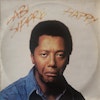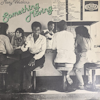Labi Siffre is as notable for what he is not as for what he is. He’s often misidentified as an R&B artist of some sort, an impression reinforced by the many samples taken from his music and the fact that he’s Black. In fact, he’s anything but R&B, belonging instead to an eclectic and very British pop-folk tradition that even has hints of music-hall at times. That eclecticism, and his overall musical flexibility, makes funk and soul just two more colors in his palette that he used at will. Also setting Labi far apart from the soul lovermen who were ruling the charts during his early ’70s heyday was the fact of his being both openly gay and an outspoken atheist. Both these factors heavily inform his work in music, poetry, and his worldview. His impressive catalog of tender, touching, and poetic expressions of love in song takes on a different meaning when the listener discovers the backstory (Labi met his life partner at age nineteen and stayed with him for nearly fifty years until the latter’s passing) and then notices the lack of gender-specific pronouns in most of his songs.
This was Labi’s sixth album in as many years since his self-titled debut in 1970. Though he’d had a handful of memorable U.K. chart hits in 1971 and ’72, and made the requisite appearances on Top of the Pops, Labi was more of a connoisseur’s-choice singer-songwriter overall. His previous album, Remember My Song, from earlier the same year, is a big contributor to the erroneous perception of him as a funk artist, containing as it does the by-now-legendary “I Got The” (as sampled by Jay Z and Eminem) and rare-groove DJ favorite “The Vulture.” This album contains another funky banger in the form of the stripped-down strut of “Doctor Doctor,” but it’s also a solid overview of Labi’s usual stylistic versatility. There’s glam (“La-De-Da-De-Da”), country (“You’ve Done Something to My Heart”), and pre-Beatles rock/doo-wop (“You Hurt Me”), all done with aplomb. But the real gems are things like the stunning ’70s-pop confection “Sally Came to Stay” and hard-to-classify yet completely infectious songs like “Love-a-Love-a-Love,” the Caribbean-favored “Second Time Around,” and “Supaluvva.”
It’s a testament to Labi’s craft that all of this hangs together effectively as an album. There is a distinct lack of the social-political musings found sprinkled, sometimes heavily, throughout virtually all of his other albums, perhaps in an effort to return to the singles charts that he had regularly appeared on a few years earlier. Despite the commercial appeal of this album, that return didn’t happen, and, aside from a sprinkling of non-LP singles over the next few years, Happy was to be Labi’s last album for a few years until his outrage at the atrocities of Apartheid inspired his 1987 comeback with the single “(Something Inside) So Strong.” Madness’s 1981 cover of “It Must Be Love,” featuring a Labi cameo in the video, also contributed to returning him to the public consciousness. For yet another generation, he’s “the guy that Kanye sampled” due to how “My Song” begat “I Wonder.” Ultimately, though, any route that leads you to this unique and wonderful artist’s richly rewarding body of work is a good one.

